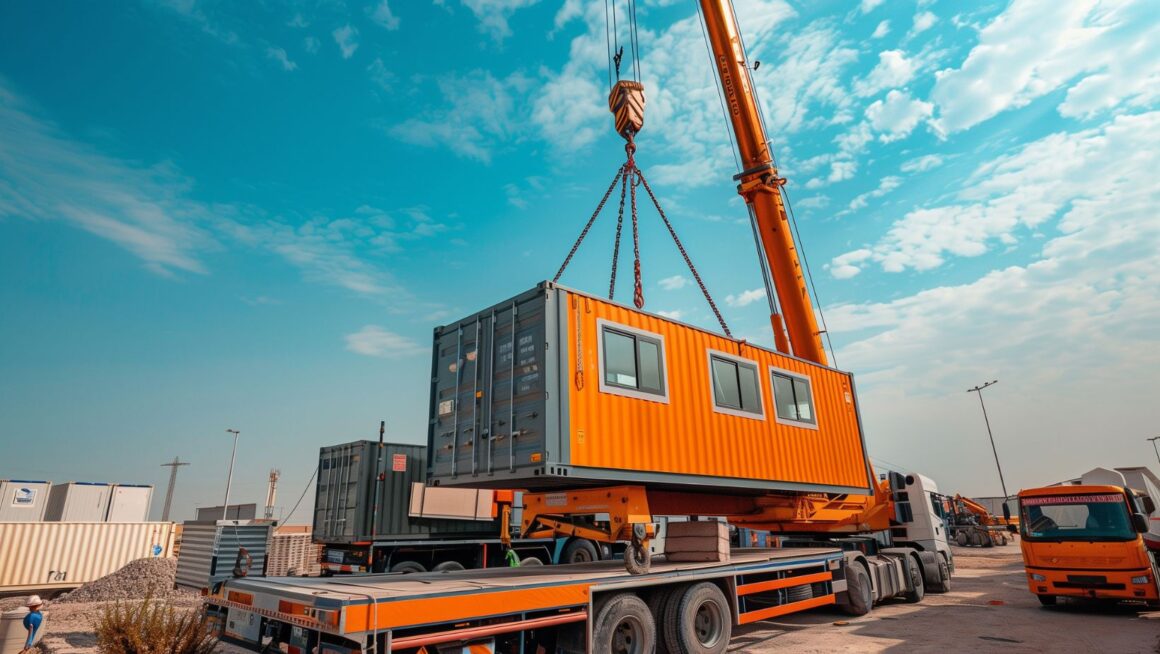Are you considering expanding your business, or do you need a new workspace? Modular office buildings offer a flexible, efficient, and often cost-effective solution. However, before investing, it’s essential to consider several factors carefully. That said, this article will explore the key considerations to help you determine if a modular office building is the right choice for your needs.
Table of Contents
ToggleWhat Are Modular Office Buildings?
These modules are built to exact specifications, complete with walls, floors, ceilings, and other components, before being transported to the final location for assembly. Once delivered to the site, the modules are connected and installed to form a complete office building.
Factors to Consider Before Investing in A Modular Office Building
Investing in a modular office building offers a variety of advantages, such as reduced construction time and lower costs, but it’s crucial to weigh the following factors to ensure a successful investment:
Budget and Financing
Before investing in a modular office building, evaluating your budget and financing options is essential. While modular buildings are generally more cost effective than traditional construction, you still need to account for upfront costs like site preparation, installation, and customization. Additionally, one of the benefits of modular construction is its cost predictability, as there are often fewer unexpected expenses compared to traditional methods. However, it’s wise to have a contingency budget in place for any unforeseen adjustments or delays that may arise.
Design and Customization
Modular office buildings offer some degree of design flexibility, but the customization options may be more limited than traditional construction ones. When planning, ensure the design aligns with your current operational requirements and potential future expansions or adjustments.

Timeframe
One of the most significant advantages of modular construction is the significantly reduced construction time, making it an attractive option for businesses looking for quick expansion or a fast office setup. However, it is important to ensure that the proposed construction timeline aligns with your business plans. Additionally, while the building can be constructed rapidly, you should still factor in the time needed to obtain local permits and approvals and comply with zoning regulations, which can vary based on location.
Building Site and Location
The success of modular building solutions largely depends on the suitability of the site where it will be installed. Proper site preparation is essential, as the building will require a stable foundation, potentially involving grading, leveling, and ensuring that utilities are available. Furthermore, it’s vital to assess the site’s accessibility for delivering and assembling the modular sections, as transportation logistics can influence the overall timeline and cost.
Quality and Durability
Material quality and durability should be top priorities when investing in a modular office. Not all modular buildings are created equally, so it’s essential to work with a reputable builder who uses high-quality, long-lasting materials. Additionally, you must ensure that the building is designed to withstand the local climate, whether it involves extreme heat, cold, or severe weather conditions like heavy rain, snow, or strong winds.
Long-Term Flexibility
Modular buildings offer a unique advantage in terms of scalability and future flexibility. If your business is growing or your needs are likely to change, consider whether the building’s design allows for easy expansion or reconfiguration. Adding sections or modifying the layout over time without disrupting operations is a significant advantage. Also, think about the long-term resale value of the building. If your company moves or upgrades, you want to ensure that the modular office retains its value or can be adapted for future use.
Sustainability
Sustainability is an increasingly important factor in modern building construction, and modular buildings tend to have a smaller environmental footprint than traditional methods. This is due to reduced material waste and energy-efficient construction processes. If sustainability is a priority for your company, inquire about eco-friendly materials and energy-efficient design options to minimize the building’s environmental impact.

Additionally, consider the energy efficiency of the building’s design and features, as this will play a key role in reducing operational costs over the long term.
Vendor and Contractor Experience
Choosing the right vendor and contractor is critical to the success of your modular office project. Research the experience and reputation of the modular building company, checking customer reviews and case studies of previous projects. Working with a company with a proven track record in constructing modular office structures will give you confidence in the quality and reliability of the final product. Additionally, verify what warranties and post-construction support the company offers, as ongoing maintenance may be necessary.
Compliance with Local Building Codes
Finally, ensure your modular building complies with all local building codes and regulations. Just like traditional office structures, modular buildings must adhere to your region’s safety, zoning, and construction standards. This includes meeting fire safety standards, emergency exit requirements, and other specific office environment regulations. Thoroughly vet your plans with local authorities and ensure your building is up to code to avoid costly revisions or penalties.
By considering these factors, you can make a well-informed decision that ensures your modular office building investment aligns with both your immediate needs and long-term business goals.
Conclusion
Modular office buildings present a compelling option for businesses seeking adaptable and efficient workspace. By carefully considering the factors outlined in this guide, you can make an informed decision about whether a modular building aligns with your specific needs and goals.



